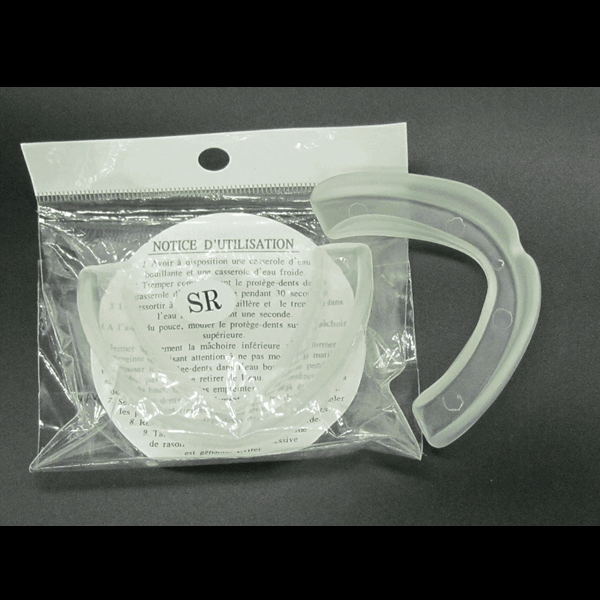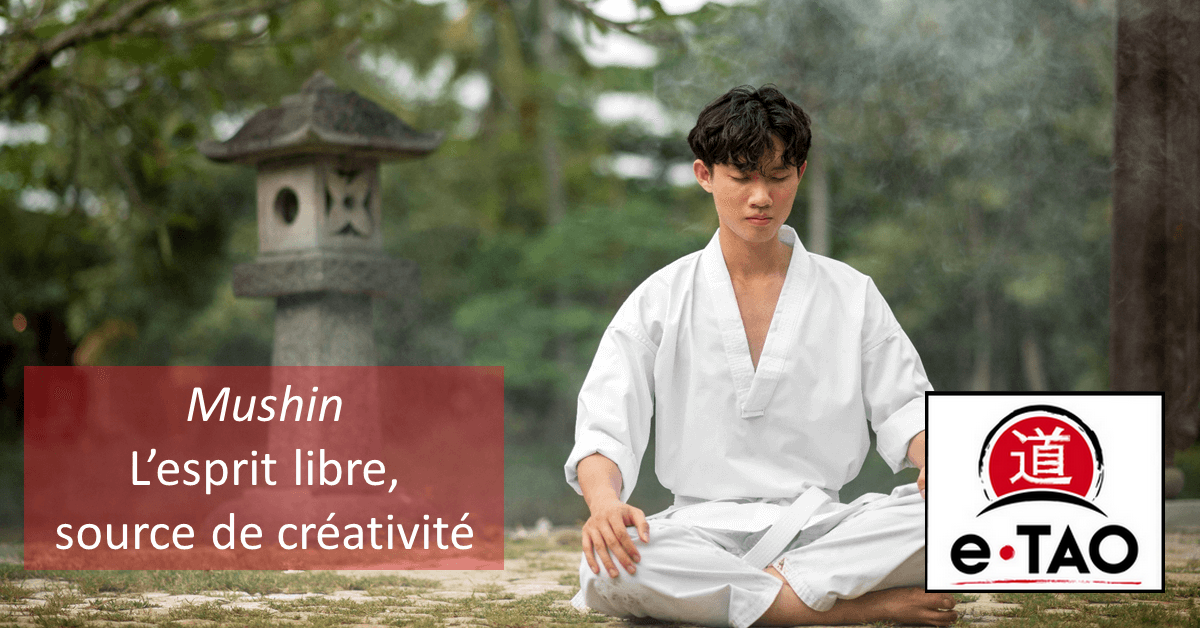The term mushin contains the negative character "無" (mu, meaning "without") and the character "心" (shin, meaning "heart" or "mind"). It is a shorthand for mushin no shin (無心の心), a Zen expression that literally means "mind without mind." This state, also called no-mind , refers to a mind free from mental fixation, intrusive thoughts, or disturbing emotions—a mind that is open, available, fully in the present moment.
In martial arts, we seek mushin in moments of truth, when every fraction of a second counts, to be able to react accurately and spontaneously. In this column, however, I would like to offer you another perspective on this state: that of a mind open to creativity .
In the whirlwind of everyday life—work, studies, family responsibilities, etc.—our minds are often saturated. Our cognitive resources are called upon from all sides. However, when we give ourselves a break, whether by going for a run, meditating, practicing a kata, or simply contemplating the present moment, something happens: a creative lucidity emerges. It is often in these moments that ideas come to me bunkai , educational exercises, or, like today, the inspiration to write this column.
Take a moment of mindfulness or mushin , makes us more efficient later on. I remember my university years: I sometimes hit dead ends in my practical work. Caught in my blinkers, I saw no solution. But after giving my karate lessons—a discipline I rigorously imposed on myself—I would come back with a suddenly clear mind, and the solutions would appear naturally.
In our age of hyperconnectivity, it is becoming increasingly difficult to find these moments of mushin . Some people avoid them because a constantly busy mind prevents us from introspection. Stopping, meditating, being alone with our thoughts, can be disturbing. We often prefer to fill these silences with all sorts of content. I'm not against entertainment, but I often hear: "I don't have time." Yet, statistics on screen time would probably be very revealing about how much they occupy their time and their minds.
I came to another realization: once upon a time, we had only one life to care for—our own, very real life. Today, we have two: real life and virtual life. And this second life requires an enormous amount of time and energy to sustain. That's why I believe the practice of martial arts is health , in the noble sense of the term. It allows you to disconnect, reconnect with yourself and find mental balance.
I invite you to discover the work of Sonia Lupien, a neuroscientist specializing in human stress and its effects on the brain. I also recommend the book Deep Work (in French: Regaining Focus in a World of Distractions ) which offers a method to save time, improve efficiency and regain a state of deep concentration. This research agrees that we take a lot of care of our bodies - often for aesthetic purposes - but not enough of our cognitive health . One of the great lessons of Deep Work : we should focus on one task at a time, rather than juggling seven open windows, music playing in the background, and a phone always within reach. This constant multitasking exhausts our brains.
In conclusion, I wanted to offer you this other perspective of mushin : not only as a state of presence in martial action, but also as a mental space conducive to creativity , introspection and better mental health.
Larry Foisy










